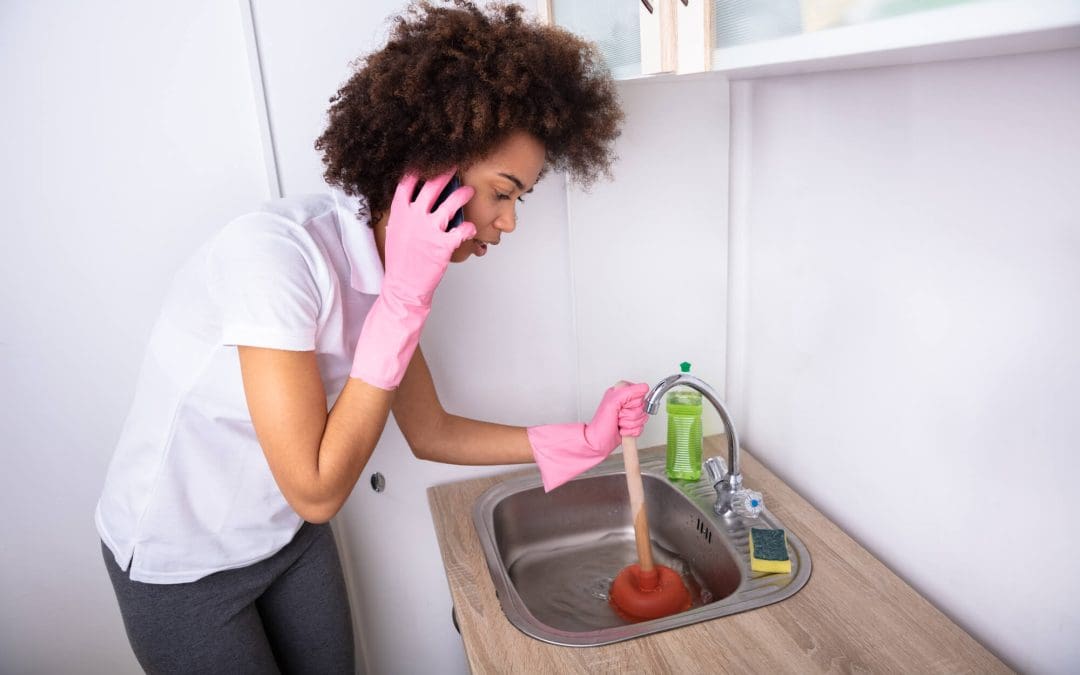A clogged drain can disrupt your daily routine and lead to more significant plumbing issues if left unattended. Fortunately, with a few basic tools and techniques, you can often unclog a drain without professional help. This guide will walk you through the steps to clear a clogged drain effectively.
Understanding the Cause of the Clog
Before you tackle the clog, it’s essential to understand its potential cause. Common culprits include hair, soap scum, grease, food particles, and foreign objects. In bathroom sinks and showers, hair and soap buildup are frequent offenders. In kitchen sinks, grease and food scraps are usually the problem. Identifying the cause can help you choose the most effective solution.
Using a Plunger to Unclog a Drain
A plunger is a handy tool for dislodging minor clogs. First, ensure there’s enough water in the sink to cover the plunger’s bell. Position the plunger over the drain and press down firmly to create a seal. Then, plunge vigorously up and down for 15 to 30 seconds. If the water begins to drain, you’ve successfully cleared the clog. You may need to try a different method if the water remains stagnant.
Employing a Drain Snake
A drain snake, or auger, is a flexible tool designed to reach deeper clogs that a plunger can’t address. Insert the end of the snake into the drain and rotate the handle as you push it further in. The snake will break up or hook the clog, allowing you to pull it out. Once you’ve removed the obstruction, run water through the drain to ensure it flows freely.
Using Baking Soda and Vinegar to Unclog a Drain
Baking soda and vinegar can be effective for a natural and chemical-free approach. Start by pouring a pot of boiling water down the drain to loosen the clog. Next, add about a cup of baking soda, followed by a cup of vinegar. You’ll hear a fizzing sound as the mixture reacts. Let it sit for about 15 minutes, then flush the drain with hot water. This method is particularly useful for minor clogs and can help freshen up the drain.
Checking the P-Trap
The P-trap is the curved pipe beneath your sink designed to catch debris and prevent sewer gases from entering your home. Place a bucket underneath the trap to catch any water that might spill. Unscrew the trap and remove it from the drain assembly. Clean out any debris and reassemble the trap. This step can be beneficial if the clog is close to the drain.
Preventing Future Clogs
To prevent future clogs, consider installing a drain strainer to catch hair and food particles. Avoid pouring grease down the sink, as it can solidify and cause blockages. Regularly cleaning your drains with a combination of baking soda and vinegar can also help keep them clear.
When to Call a Professional to Unclog a Drain
If these methods do not resolve the issue, or if you encounter frequent clogs, it might be time to call a professional plumber. Persistent drainage problems can indicate more severe issues in your plumbing system that require expert attention.
By following these steps, you can tackle most common drain clogs yourself, saving time and money. Remember to address clogs promptly to maintain the efficiency of your plumbing system and avoid more significant problems down the line.
FAQs
Can I use chemical drain cleaners instead?
Chemical drain cleaners can be effective, but they are often harsh and may damage pipes over time. They can also be dangerous if not used properly. Opting for mechanical methods or natural solutions is usually safer for your plumbing.
What if the drain snake gets stuck?
If the drain snake becomes stuck, gently rotate the handle to work it free. Avoid forcing it, as this can damage your pipes. You may need to call a professional for assistance if you cannot free the snake.
How often should I clean my drains to prevent clogs?
Regular maintenance is key. Cleaning your drains once a month with a mixture of baking soda and vinegar can help prevent buildup and keep your plumbing running smoothly.
Is it safe to use a plumbing snake on all types of pipes?
Drain snakes are generally safe for most pipes, but be cautious with older or fragile plumbing. If you’re unsure about the condition of your pipes, consult a professional before using a snake.
Inspect It Neil provides home inspections to homebuyers and sellers in New Jersey. Contact us to request our services.

